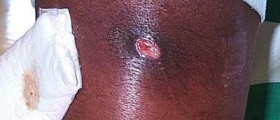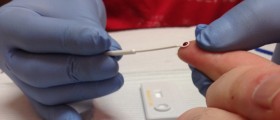
Gonorrhea is caused by a specificbacterium, called Neisseria gonorrhoeae. It is a sexually transmitted bacterialinfection which tends to attack the mucous membranes of the body. Gonorrhea canbe passed not only through the intercourse, but also it can be transmittedthrough a birth canal to a newborn. Often, infections can lead to cervicitis, proctitis,urethritis, pelvic inflammatory disease, and pharyngitis. This infection canincrease the risk for ectopic pregnancy and sensitivity to HIV as well.
Gonorrhea is one of the mostcommon infectious diseases. In 2007, there was 350,000 cases reported in theStates and that number is most likely even higher because of the unreported cases.
Drug-resistant strains ofgonorrhea are increasing all over the world, and that is why a successfultreatment is becoming more difficult. Resistance to fluoroquinolone is nowhigher than it was ten years ago. Yearly, about 200 million people get thisinfection all over the world.
Gonorrhea is most commonly causedby any kind of sexual contact (vaginal, anal or oral) with the infected person.It can also be caused by mucosal inoculation through contaminated objects.Pregnant women can pass this infection to a child trough the scalp.
There are some factors thatincrease the risk of being infected by gonorrhea. First, it is the sexualcontact with the infected person without an adequate protection. Also, havingmore than one sexual partner increases the risk of infection. Newborns are at high risk if a mother is infected. Children who are sexually abused by an infectedperson are also at risk. Children could also get gonorrhea through non-sexualcontact in institutions or at home. Usage of long-term birth control method(IUD) can increase the chances for gonorrhea.
Treatment for gonorrhea infectionis easy and includes a single dose of certain antibiotics. It is common thatpeople who are infected by gonorrhea are infected by chlamydia at the same time,so both of these infections should be treated in such cases. It is importantthat the partner of the infected individual be also examined in order toprevent reinfection.
Centres for Disease Control andPrevention (CDC) gave recommendation that gonorrhea should not be treated with fluoroquinoloneantibiotics. That is because of the increased resistance to these antibiotics.Medicines in cephalosporin class are now used. Nowadays, cefixime is easy to find in the States and the treatment which includes this drug is veryefficient. Ceftriaxone is an injectable antibiotic, used also for thisinfection. Also commonly used antibiotics are spectinomycin, silver nitrate anderythromycin.

















Your thoughts on this
Loading...